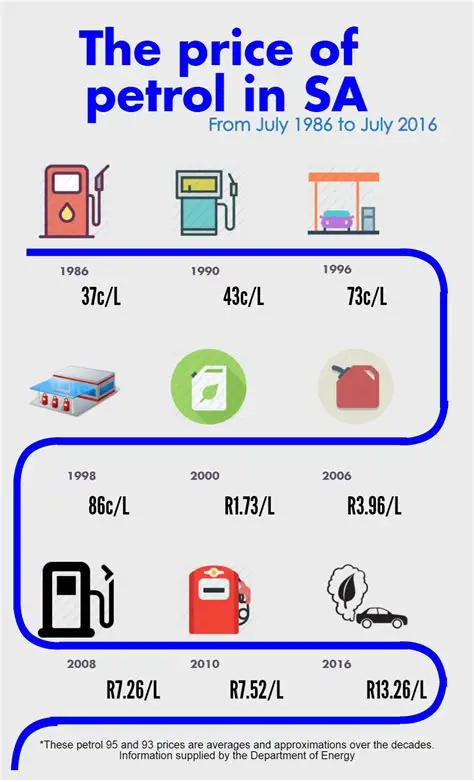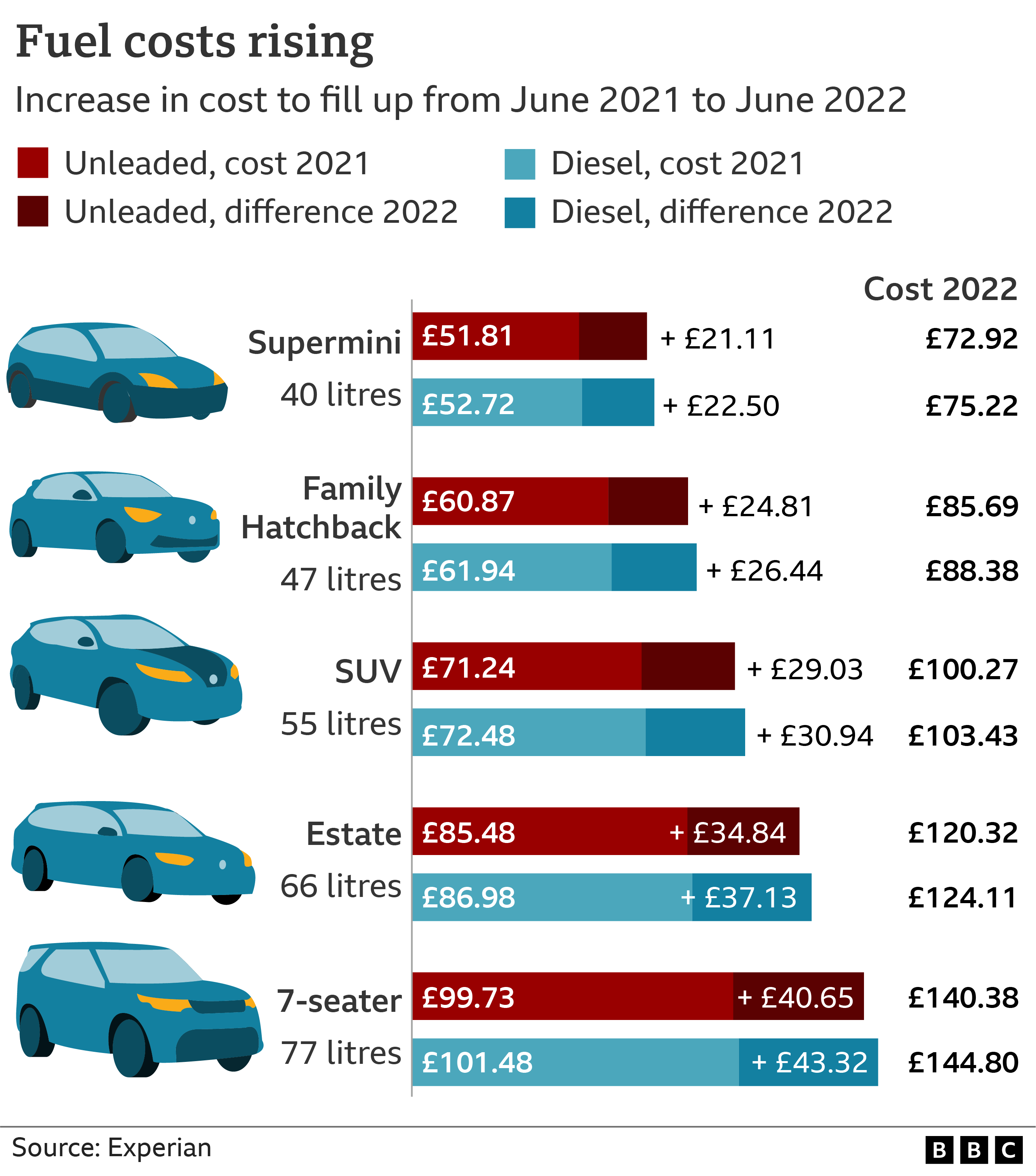- What's Driving the Petrol Price Trends in 2025?
- How to Lower Your Fuel Expenses
- Why Do Petrol Prices Differ From Place to Place?
- FAQ
Petrol prices have long been a significant concern for vehicle owners worldwide. Whether you are a commuter, a long-distance driver, or someone managing a fleet, understanding fuel price trends and finding ways to lower your costs is a smart move. With prices becoming unpredictable due to multiple factors, knowing what affects them and how to adapt can make a big difference for your wallet.
What's Driving the Petrol Price Trends in 2025?
Petrol costs, also known as fuel costs or gas prices, fluctuate frequently depending on many global and regional influences. Each year, new trends emerge that impact how much you pay at the pump. In 2025, the following factors play a major role:
Key Influencers of Petrol Costs
Global Politics and Conflicts: Unstable regions with oil production or geopolitical disputes can reduce the oil supply, increasing costs at a global scale.
Environmental Policies in Countries: Governments worldwide have raised taxes on fossil fuels to promote cleaner alternatives. Many developed nations now see petrol taxes exceeding 60% of the retail price.
Transition to Electric Vehicles: Regions where electric cars have reached over 30% market penetration are reporting reduced fuel demand. However, this change often results in higher petrol distribution costs as traditional fueling networks scale down.
Economic Factors: Inflation, labor costs at refineries, and transportation prices further impact the retail petrol price.
The Global Petrol Price Overview
Petrol prices can differ significantly from region to region. This is due to differences in tax rates, fuel subsidies, exchange rates, and logistical costs. Below, we provide approximate typical ranges for unleaded petrol costs as of 2025. These are estimates and may not represent the exact price in your location:
Region Type | Typical Price Range (per litre) | Notes |
|---|---|---|
High-Tax Regions | AED 10.5 - AED 12.7 / SAR 10.7 - SAR 13.0 | Includes significant environmental taxes on fuel |
Low-Tax Regions | AED 7.2 - AED 9.1 / SAR 7.4 - SAR 9.3 | Reflects minimal government taxation |
Metropolitan Areas | AED 11.0 - AED 13.5 / SAR 11.2 - SAR 13.8 | Higher logistics and operating costs for urban areas |
Prices are illustrative. Check your local gas station for accurate costs.
How to Lower Your Fuel Expenses
Even though you can't control petrol prices, you can make choices to reduce your fuel costs effectively. Adopting practical driving habits and maintaining your car can lead to noticeable savings.
Keep Your Car in Shape
Maintain Proper Tyre Pressure: Check your tyre pressure monthly and inflate to manufacturer specifications. This helps improve your car's fuel efficiency.
Perform Routine Maintenance: A well-maintained engine consumes less fuel. Get oil changes on time and replace air filters regularly.
Remove Unnecessary Weight: Heavy items in your car increase fuel consumption. Carry only essentials.
Be Mindful of Air Conditioning: Use AC sparingly. Open your windows when driving at low speeds, and switch to AC for highway journeys.
Optimize Your Driving Style
Avoid Heavy Acceleration or Braking: Drive smoothly to conserve petrol and extend vehicle life.
Maintain Consistent Speeds: Use cruise control on highways to optimize fuel consumption.
Combine Short Trips: Plan errands efficiently to avoid frequent cold starts, which consume more fuel.
Turn Off the Engine When Stationary: If you’re waiting for more than 60 seconds, turn the engine off to save fuel.
Take Advantage of Opportunities to Save
Utilize Petrol Price Comparison Apps: Apps and websites help you identify the cheapest nearby petrol stations.
Sign Up for Rewards Programs: Many gas stations offer discounts, cashback, or loyalty points for purchases.
Why Do Petrol Prices Differ From Place to Place?
Petrol price differences can sometimes feel unreasonable, but they occur due to several valid reasons:
Oil prices from global suppliers set the initial cost. Any delays or changes in supply chains directly affect costs.
Refineries charge for processing crude oil into petrol, and some regions have more advanced or cost-effective refining facilities.
Logistics costs add price variation. Transporting petrol to remote or urban areas requires fuel and labor, which increases costs.
Finally, government taxes or subsidies often create the widest cost differences. Countries that depend on fuel imports frequently charge higher taxes.
FAQ
Q:Why are petrol prices so different within the same city?
A:Local factors like competition between gas stations, differences in rent and labor costs, and station promotions can significantly impact retail prices. Additionally, some brands may include different additives in their fuel, affecting the costs.
Q:Should I buy higher octane petrol to save on consumption?
A:Using a higher octane petrol than your car requires will not improve your fuel economy. Unless your engine specifically needs it, the additional cost typically doesn't yield better mileage.
Q:What’s cheaper in the long run:petrol or electric vehicles?
A:Electric vehicles (EVs) are often cheaper to operate in regions with low electricity prices. However, the cost depends on your driving habits, charging availability, and purchase price of the EV compared to petrol vehicles.
Q:Will petrol prices eventually stabilize at lower levels?
A:Long-term stabilization at lower prices is unlikely due to global economic factors and environment-driven policy shifts. While prices may fluctuate, the overall trend points towards gradual increases.
Read More:
Maruti Ciaz Interior:Smart Design & Comfort Features Explained


.webp?x-oss-process=image/format,webp/interlace,1/quality,q_70/resize,w_750)








